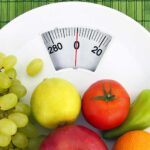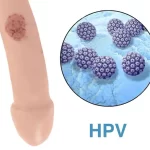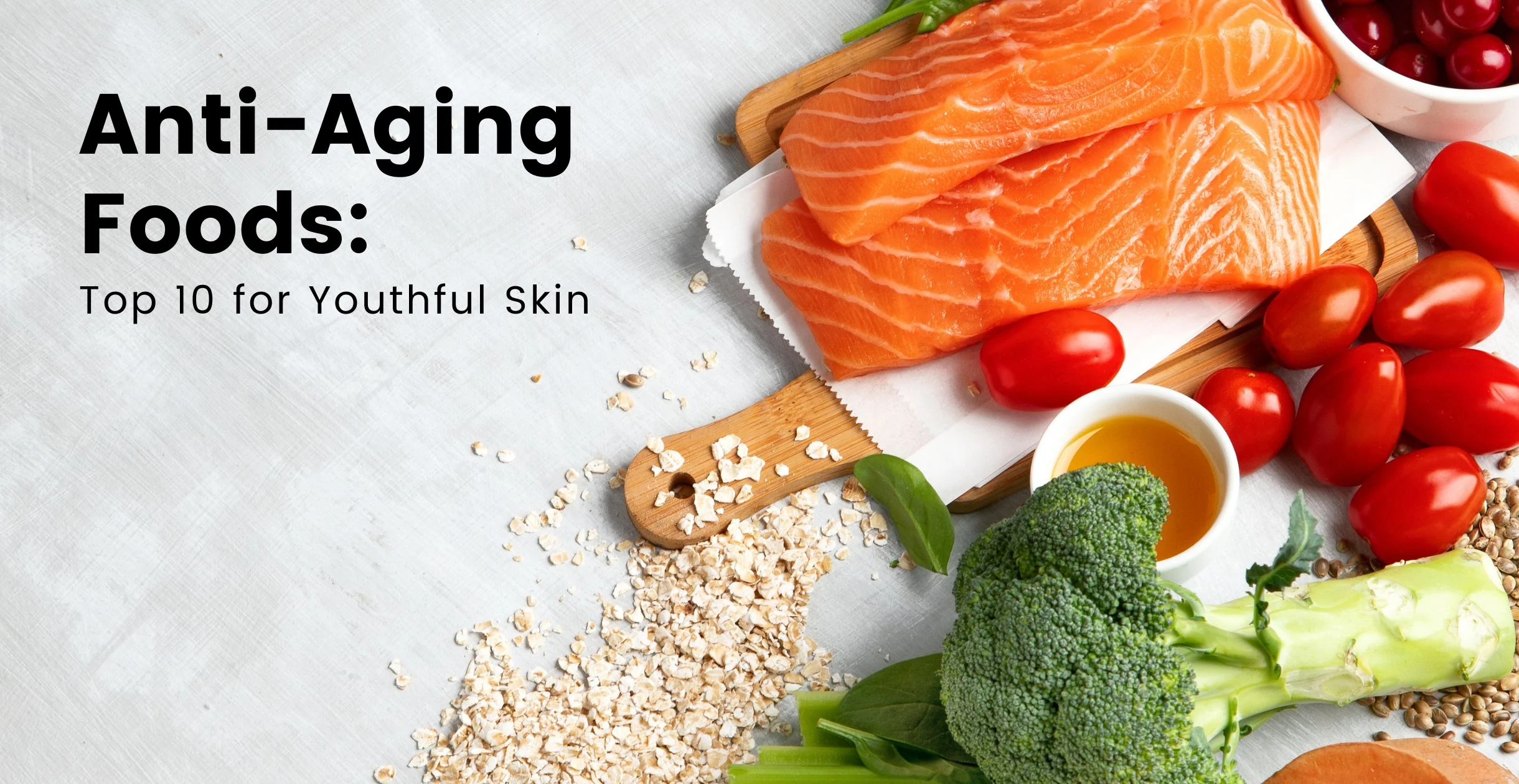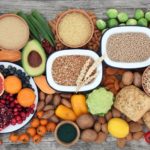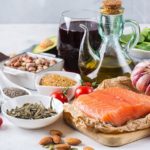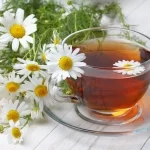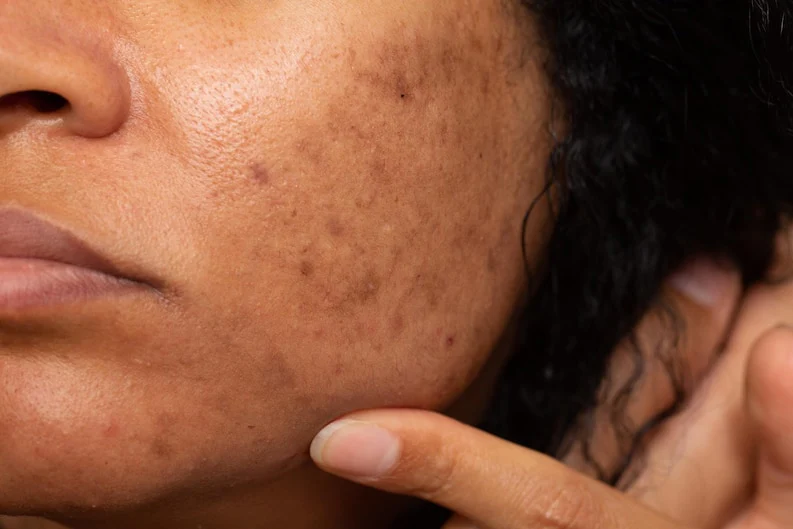Best Anti Ageing Foods for You
Knowing the best anti ageing foods are quite imperative because as we grow older, the foods we eat play a crucial role in our fitness, appearance, quality of life, and overall health. Our bodies depend on essential nutrients to support natural aging, and some of these nutrients may help slow down visible signs of aging—such as by promoting healthy skin and reducing inflammation.
However, it’s important to remember that no single food can magically make you look younger. Aging well is influenced by a combination of factors, including nutrition, lifestyle, hydration, sleep, and stress management.
That said, adding nutrient-rich foods to your diet can help you feel and look your best as you age. To support healthy aging, try to include:
✅ Healthy sources of protein (e.g., fish, lean meats, beans, and nuts)
✅ Healthy fats (e.g., avocados, olive oil, nuts, and fatty fish)
✅ Antioxidant-rich foods (e.g., berries, leafy greens, and colorful vegetables)
Best Anti Ageing Foods You Should Know
- Extra Virgin Olive Oil: A Powerful Anti-Aging Superfood
Extra virgin olive oil is one of the healthiest oils in the world. It’s packed with healthy fats and antioxidants that help reduce inflammation and protect the body from oxidative damage caused by free radicals.
Health Benefits of Olive Oil
A diet rich in olive oil has been linked to a lower risk of chronic diseases, including:
✔️ Heart disease
✔️ Type 2 diabetes
✔️ Metabolic syndrome
✔️ Certain types of cancer
How Olive Oil Supports Healthy Skin
About 73% of olive oil is made up of monounsaturated fats (MUFAs), which have strong anti-inflammatory properties. Studies suggest that a diet high in MUFAs may help reduce signs of skin aging, keeping the skin looking healthier and more youthful.
Additionally, extra virgin olive oil contains powerful antioxidants, such as:
🟢 Tocopherols (Vitamin E) – Helps protect the skin from damage
🟢 Beta carotene – Supports skin health and reduces signs of aging
🟢 Phenolic compounds – Have anti-inflammatory effects that may slow aging
A 2012 study found that people who consumed a diet rich in MUFAs from olive oil had a lower risk of severe skin aging. Researchers believe that the anti-inflammatory properties of MUFAs and antioxidants play a key role in this benefit.
How to Add Olive Oil to Your Diet
For the best results, choose extra virgin olive oil, as it is less processed and contains higher levels of antioxidants than refined olive oil. Try:
🥗 Drizzling it over salads
🥖 Using it as a dip for whole-grain bread
🍳 Cooking with it at low to medium heat
- Green Tea: A Powerful Anti-Aging Drink
Green tea is packed with antioxidants that help protect your body from free radicals—unstable molecules that can damage your cells and speed up aging.
How Green Tea Fights Aging
Free radicals naturally form in the body but can increase due to external factors like:
☀️ UV radiation from the sun
🚬 Tobacco smoke
🌫 Pollution
Green tea is rich in antioxidants that help neutralize free radicals before they cause harm. These antioxidants include:
🟢 Epigallocatechin gallate (EGCG) – A powerful compound that protects cells from damage
🟢 Catechins – Support heart health and reduce inflammation
🟢 Gallic acid – Helps fight premature aging
Health and Skin Benefits of Green Tea
Drinking green tea regularly may help lower your risk of:
✔️ Heart disease
✔️ Cognitive decline
✔️ Premature aging
✔️ Other chronic diseases
Green tea’s polyphenols may also protect your skin from aging caused by sun exposure and pollution. That’s why many skincare products now include green tea extract for its anti-aging benefits—though more research is needed to confirm its effectiveness in skincare.
How to Add Green Tea to Your Routine
Enjoy the anti-aging benefits of green tea by:
🍵 Drinking 2–3 cups per day for maximum antioxidant intake
🧊 Trying iced green tea for a refreshing alternative
🍯 Adding lemon or honey for extra flavor and nutrients
- Fatty Fish: A Skin-Loving Superfood
Fatty fish, such as salmon, mackerel, and sardines, is packed with nutrients that support healthy, youthful skin.
Why Fatty Fish is Great for Your Skin
🐟 Rich in Omega-3s – Helps reduce inflammation and strengthen the skin barrier, keeping skin hydrated and smooth.
🧡 Contains Astaxanthin – A powerful antioxidant in salmon that may improve skin elasticity and hydration.
💪 High in Protein – Supports collagen and elastin production, which keep skin firm and youthful.
🛡 Loaded with Selenium – Helps repair DNA and protect skin from UV damage.
How to Add More Fatty Fish to Your Diet
✔️ Grill or bake salmon for a delicious, skin-boosting meal
✔️ Add sardines to salads or toast for a quick nutrient boost
✔️ Enjoy tuna or mackerel in wraps or sandwiches
- Dark Chocolate: A Tasty Anti-Aging Treat
Dark chocolate isn’t just delicious—it’s also packed with skin-friendly antioxidants that may help slow signs of aging.
Why Dark Chocolate is Great for Your Skin
🍫 Rich in Flavonols – Helps protect the skin from sun damage and supports skin hydration and elasticity.
🧠 Supports Brain Health – Linked to a lower risk of cognitive decline as you age.
💓 Heart-Healthy – May help reduce the risk of heart disease and type 2 diabetes.
How to Get the Most Benefits
✔️ Choose dark chocolate with at least 70% cocoa for maximum antioxidants.
✔️ Enjoy in moderation to avoid excess sugar and calories.
✔️ Add unsweetened cocoa powder to smoothies or oatmeal for an extra flavonol boost.
- Vegetables: Your Skin’s Best Friend
Packed with antioxidants, vitamins, and fiber, vegetables are one of the best foods to keep your skin healthy and youthful.
How Vegetables Help You Look Younger
🥕 Rich in Beta Carotene & Lycopene – May help protect the skin from sun damage and premature aging.
🍊 High in Vitamin C – Essential for collagen production, keeping skin firm and smooth.
🥦 Loaded with Antioxidants – Helps reduce inflammation and supports heart health.
Best Anti-Aging Vegetables
- For Sun Protection – Carrots, sweet potatoes, pumpkin.
- For Collagen Production – Bell peppers, broccoli, tomatoes, leafy greens.
- For Overall Skin Health – Eat a variety of colorful veggies daily.
💡 Tip: Aim for at least two servings of vegetables at every meal for glowing skin and better health.
- Flaxseed: A Tiny Seed with Big Benefits
Flaxseeds are packed with antioxidants, omega-3 fatty acids, and fiber, making them a powerhouse for both skin health and overall well-being.
How Flaxseeds Keep You Looking Younger
🌿 Rich in Lignans – A type of antioxidant that may reduce the risk of heart disease and cancer.
💧 Boosts Skin Hydration – Omega-3 fatty acids help keep skin soft, plump, and moisturized.
✨ May Reduce Wrinkles – Studies suggest flaxseeds can smooth skin and improve elasticity.
How to Add Flaxseed to Your Diet
- Sprinkle ground flaxseeds over oatmeal, yogurt, or salads.
- Blend into smoothies for an extra nutrient boost.
- Use flaxseed oil as a salad dressing.
💡 Tip: For best results, grind flaxseeds before eating them to unlock their full nutritional benefits.
- Pomegranates: A Natural Skin Protector
Pomegranates are packed with antioxidants, vitamins, and minerals that support overall health and keep your skin looking youthful.
How Pomegranates Benefit Your Skin
🍊 Rich in Antioxidants – Protects against sun damage and brown spots caused by UV rays.
💖 Supports Heart Health – High in fiber, potassium, and vitamin K.
✨ Boosts Collagen Production – Helps maintain skin elasticity and reduce wrinkles.
How to Add Pomegranates to Your Diet
- Eat the seeds as a snack or add them to salads and smoothies.
- Drink pomegranate juice for a refreshing antioxidant boost.
- Use pomegranate extract in skincare for extra nourishment.
- Avocados: A Superfood for Healthy Skin
Avocados are packed with healthy fats, fiber, and essential vitamins, making them a powerhouse for your skin and overall health.
How Avocados Benefit Your Skin
🥑 Rich in Monounsaturated Fats – Supports a strong skin barrier, keeping it hydrated and supple.
🛡️ Loaded with Antioxidants – Helps fight free radicals that cause skin aging.
👵 Promotes Youthful Skin – A diet high in plant-based fats is linked to better skin health as you age.
Easy Ways to Add Avocados to Your Diet
- Spread on toast for a creamy, nutritious breakfast.
- Blend into smoothies for an extra boost of healthy fats.
- Add to salads and wraps for a delicious, skin-loving meal.
- Tomatoes: A Skin-Loving Superfood
Tomatoes are loaded with nutrients and antioxidants, making them a great addition to a healthy diet.
How Tomatoes Benefit Your Skin
🍅 Rich in Lycopene – A powerful antioxidant that helps protect against sun damage and signs of aging.
🛡️ May Reduce Wrinkles – Studies suggest that lycopene-rich diets can improve skin texture and reduce fine lines.
🥑 Boosts Nutrient Absorption – Pairing tomatoes with healthy fats (like avocado or olive oil) helps your body absorb more lycopene for maximum benefits.
Easy Ways to Eat More Tomatoes
- Toss fresh tomatoes into salads and sandwiches.
- Blend into soups and sauces for a delicious meal.
- Drizzle with olive oil for an easy, skin-loving snack.
Collagen Peptides: Supporting Healthy Skin as You Age
Collagen is the most abundant protein in the body, playing a key role in maintaining skin elasticity and joint health. However, as we age, our body’s ability to produce and maintain collagen naturally declines, leading to visible signs of aging such as wrinkles and sagging skin.
While this process is a natural part of aging, you can support collagen production by eating protein-rich foods and vitamin C-rich foods, which help your body synthesize collagen more effectively. Additionally, avoiding habits that break down collagen—like excessive sun exposure and smoking—can help maintain youthful skin.
Collagen Supplements: Do They Work?
Studies suggest that hydrolyzed collagen peptides—a more easily absorbed form of collagen—may improve skin elasticity, hydration, and firmness while reducing wrinkles. However, it’s important to note that many studies don’t account for other lifestyle factors such as diet, protein intake, and smoking. Also, since the body distributes collagen where it’s most needed, there’s no guarantee that consuming it will directly benefit the skin.
The Best Way to Support Collagen Production
The key to healthy, youthful skin is maintaining a protein-rich diet. If you want an extra boost, you can consider a collagen supplement, but first, focus on getting enough high-quality protein from whole foods like:
✅ Chicken
✅ Tofu
✅ Fish
✅ Eggs
Here are key strategies to help maintain youthful, healthy skin:
- Prioritize a Nutrient-Rich Diet
What you eat directly affects your skin’s aging process. Focus on:
- Antioxidant-Rich Foods: Berries, dark leafy greens, carrots, and bell peppers help fight oxidative stress and reduce fine lines.
- Healthy Fats: Avocados, nuts, seeds, and fatty fish (like salmon) keep the skin hydrated and supple.
- Collagen-Boosting Foods: Bone broth, eggs, citrus fruits, and leafy greens promote collagen production, maintaining skin elasticity.
- Hydration: Drink plenty of water and herbal teas to keep your skin plump and glowing.
- Adopt a Consistent Skincare Routine
- Gentle Cleansing: Wash your face with a mild cleanser to remove dirt and makeup without stripping essential oils.
- Hydration & Moisturizing: Use a high-quality moisturizer containing hyaluronic acid, glycerin, or ceramides to keep the skin hydrated.
- Exfoliation: Regular exfoliation with mild chemical exfoliants (like AHAs and BHAs) promotes skin renewal and reduces dullness.
- Anti-Aging Ingredients: Look for products with retinol, vitamin C, peptides, and niacinamide to boost collagen and reduce wrinkles.
- Protect Against Sun Damage
UV radiation is a major cause of premature aging. Protect your skin by:
- Applying broad-spectrum sunscreen (SPF 30 or higher) daily, even on cloudy days.
- Wearing hats and sunglasses for extra protection.
- Seeking shade during peak sun hours (10 AM–4 PM).
- Stay Active and Manage Stress
- Regular Exercise: Boosts circulation, oxygenates skin cells, and promotes a natural glow.
- Stress Reduction: Chronic stress leads to premature aging. Practice meditation, deep breathing, or yoga to reduce stress levels.
- Get Quality Sleep
- Aim for 7-9 hours of sleep to allow your skin time to repair and regenerate.
- Use silk pillowcases to minimize skin creasing and moisture loss.
- Avoid Harmful Habits
- Quit Smoking: Smoking accelerates wrinkles and dulls the skin by reducing oxygen flow.
- Limit Alcohol and Sugar Intake: Excess alcohol dehydrates the skin, while sugar damages collagen through glycation.
By combining these habits, you can effectively slow down the aging process and maintain youthful, glowing skin for years to come! 😊
The Key Takeaway
Your diet plays a significant role in maintaining healthy skin and influencing how it ages over time. The foods you consume can impact skin elasticity, hydration, and overall appearance.
In particular, nutrient-dense foods rich in high-quality protein, beneficial fats, and powerful antioxidants have been closely associated with promoting skin health. These nutrients help protect against premature aging, enhance skin repair, and support a radiant complexion.
However, achieving healthy skin goes beyond just eating well. Complement your nutritious diet with other essential skincare habits, such as applying sunscreen daily to shield against UV damage, avoiding harmful habits like smoking, engaging in regular physical activity to promote circulation, and using skincare products suited to your skin type.
By combining a wholesome diet with proper skincare practices, you can support long-term skin health and maintain a youthful, glowing appearance.
READ MORE: Bulimia Nervosa An Eating Disorder
Natural Treatments for the Brain
Cucumber Beautifies and Cleanses the Skin
Turmeric for your stomach and skin

A graduate of Computer Science and Information Management Technology. Diploma – Caregiving, Certificates – Dementia and Diabetes Awareness and Management. A researcher, blogger, songwriter, singer and acoustic guitarist. Born in an environment where natural talents such as healing are imparted at our natural birth. This natural talents of healing is the result of our genetic inheritance and the training from family environment.


